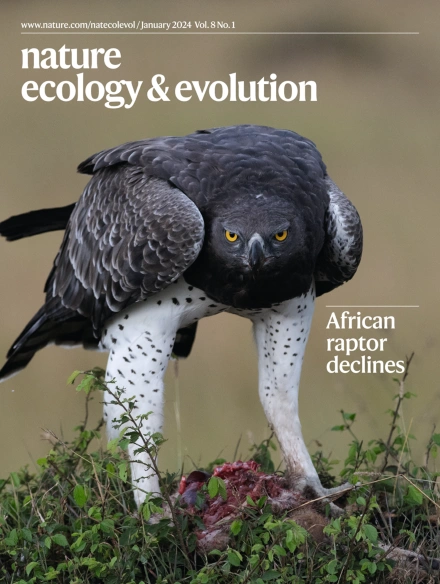Scientist engagement and the knowledge–action gap
IF 13.9
1区 生物学
Q1 ECOLOGY
引用次数: 0
Abstract
The combined gravity of biodiversity loss and climate change keeps increasing. As the approaching catastrophe has never looked so alarming, the amount of scientific knowledge about the bioclimatic crisis is still rising exponentially. Here we reflect on how researchers in ecology or climate science behave amid this crisis. In face of the disproportionality between how much scientists know and how little they engage, we discuss four barriers that may underlie the decoupling of scientific awareness from concrete action. We then reflect on the potency of rational thinking to trigger engagement on its own, and question whether more scientific knowledge can be the tipping point towards radical changes within society. Our observations challenge the tenet that a better understanding of what surrounds us is necessary to protect it efficiently. With the environmental cost of scientific research itself as an additional factor that must be considered, we suggest there is an urgent need for researchers to collectively reflect on their situation and decide how to redirect their actions. Many scientists are acutely aware of the crises of biodiversity loss and climate change, yet this abundance of knowledge is not always coupled to action. This Perspective discusses this discrepancy and urges researchers to reflect on the situation and redirect energy to take action.

科学家的参与和知识与行动之间的差距。
生物多样性丧失和气候变化的综合严重性与日俱增。灾难的来临从未像现在这样令人担忧,但有关生物气候危机的科学知识仍在急剧增加。在此,我们对生态学或气候科学研究人员在这场危机中的表现进行反思。面对科学家知多少与行动少之间的不相称,我们讨论了可能导致科学意识与具体行动脱钩的四个障碍。然后,我们反思了理性思维本身引发参与的潜力,并质疑更多的科学知识能否成为社会发生根本性变革的临界点。我们的观察对 "要想有效地保护我们周围的环境,就必须更好地了解我们周围的环境 "这一信条提出了质疑。由于科学研究本身的环境成本是一个必须考虑的额外因素,我们建议研究人员迫切需要对他们的处境进行集体反思,并决定如何调整他们的行动方向。
本文章由计算机程序翻译,如有差异,请以英文原文为准。
求助全文
约1分钟内获得全文
求助全文
来源期刊

Nature ecology & evolution
Agricultural and Biological Sciences-Ecology, Evolution, Behavior and Systematics
CiteScore
22.20
自引率
2.40%
发文量
282
期刊介绍:
Nature Ecology & Evolution is interested in the full spectrum of ecological and evolutionary biology, encompassing approaches at the molecular, organismal, population, community and ecosystem levels, as well as relevant parts of the social sciences. Nature Ecology & Evolution provides a place where all researchers and policymakers interested in all aspects of life's diversity can come together to learn about the most accomplished and significant advances in the field and to discuss topical issues. An online-only monthly journal, our broad scope ensures that the research published reaches the widest possible audience of scientists.
 求助内容:
求助内容: 应助结果提醒方式:
应助结果提醒方式:


